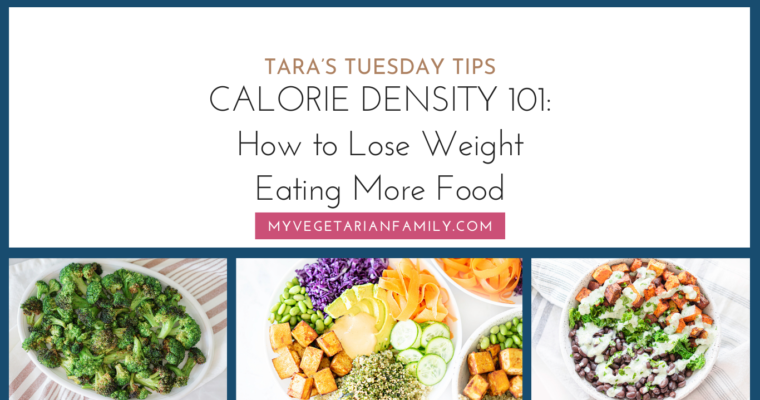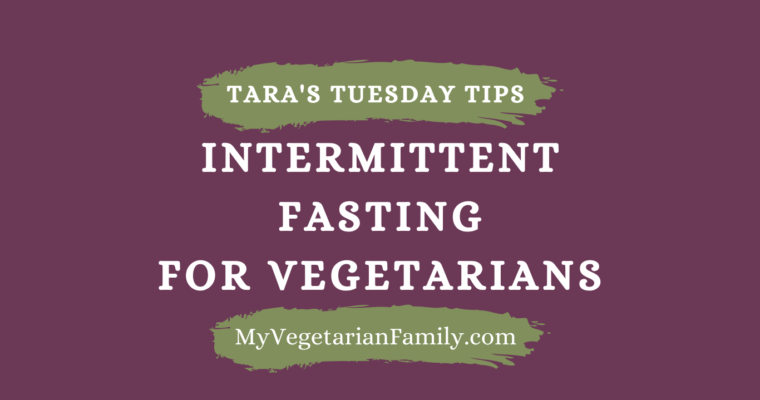You asked, “Should I be eating only organic foods?” This week, I give you my answer … with a little explanation … so you can decide for yourself. This is an extremely polarized debate, but perhaps we can get a little perspective on it together.
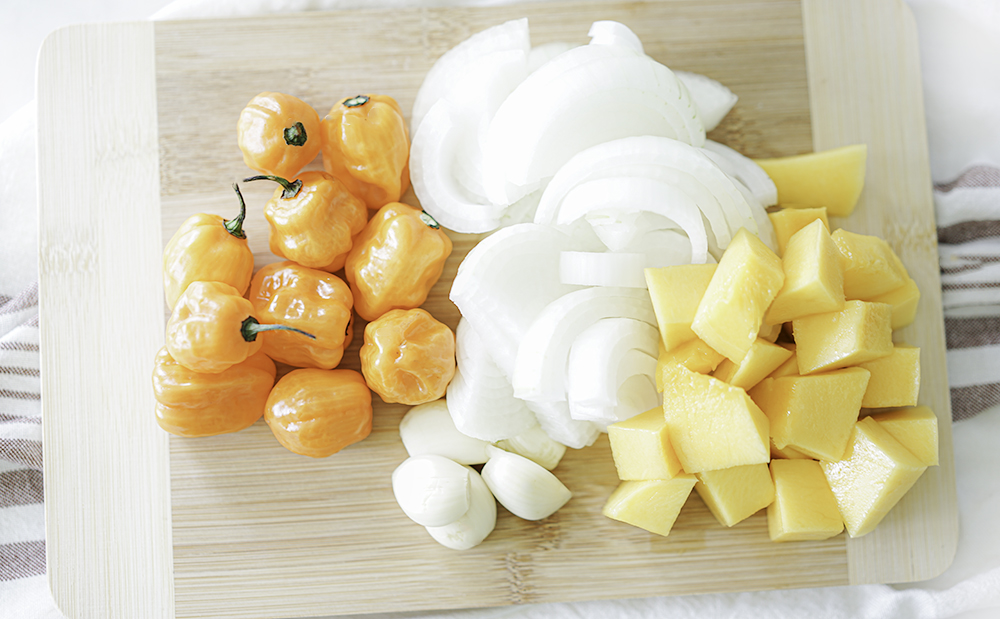
Tara’s Tuesday Tips:
Should I Be Eating Only Organic?
Marketing tactics can be very convincing. We are led to believe that if something says organic on the label, it is automatically healthier + safer. You might be surprised to hear that I am highly selective when it comes to which items I choose to buy organic and those that I don’t think are worth the extra cost. I read lots of nutrition information, studies, and dig through references to bring you a little clarity every week. This one can get a little fuzzy so let’s start with a myth-busting Q&A.
Does organic mean free of pesticides?
No. If you see that something is labeled USDA certified organic, it has been grown and processed under the regulations of the US government with regards to soil, synthetic fertilizers, and pesticides. This does not mean absent of the use of pesticides. Organic farms can only use pesticides + fertilizers from an approved list.
Is organic healthier?
No. Let’s break this one down. Multiple studies have shown us that organic produce is not nutritionally superior to conventional produce and does not lead to better health outcomes. (PMID: 22944875) Scientific, experimental research simply cannot put conventional and organic produce head-to-head and prove that organic produce is healthier. I say this with a bit of hesitation because there are other reasons that organic farming is beneficial, but producing nutritionally superior food is not one of them.
What about the environment?
Yes and no. Another one for us to dissect. It is very natural to think organic = better for the environment on all levels. Yes, the pesticides used on an organic farm are ecologically less damaging because they do not use synthetic chemicals or pesticides. However, there is an argument that because these pesticides are less effective, the organic farmers use more of them or use products not fully studied yet. In addition, the crops produce less yield per square foot of land, and perhaps some of the practices on these farms are not as strictly regulated as we would hope.
So, on this one we are going to have to lean towards yes and hope that scientific advancements in the world of agriculture can improve organic farming practices to make this a resounding definite yes in the future.
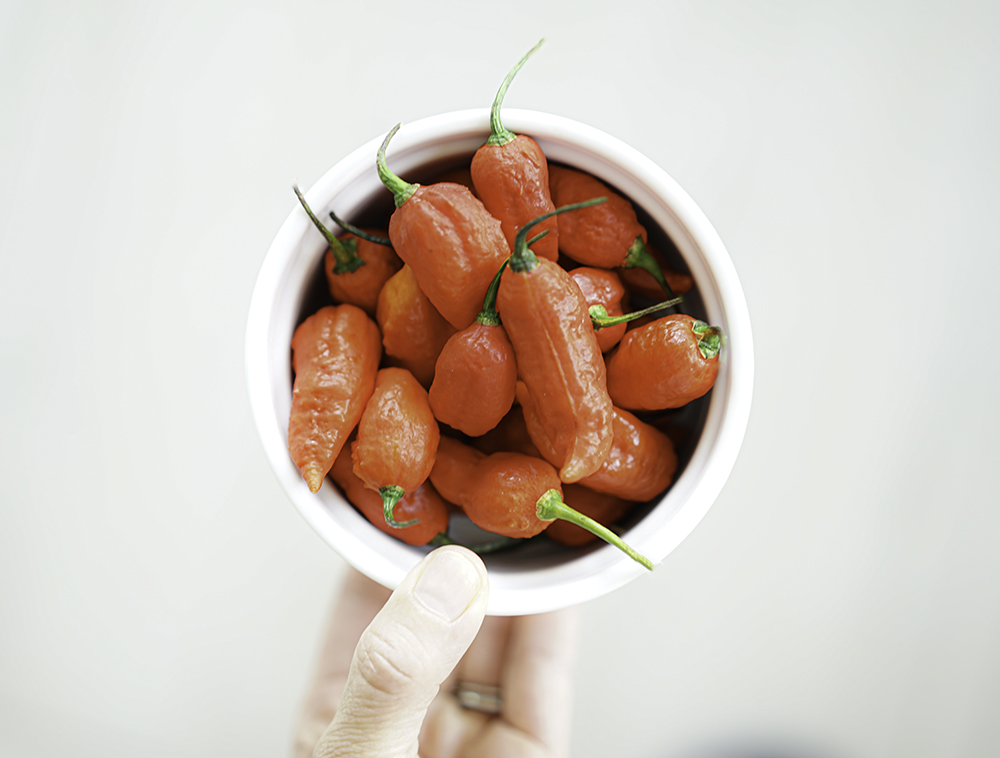
Does the USDA Organic label make a difference?
Yes. According to USDA.gov, organic foods must be grown according to federal guidelines using approved natural substances and biologically based farming methods. For packaged foods, regulations prohibit organically processed foods from containing artificial preservatives, colors, or flavors, or the use of genetically modified organisms. So, when you see that label (not just the words, it must have the green USDA logo) you can rest assured that the food you are choosing to purchase as organic has been grown and processed under US federal regulations.
Should I skip the produce if I can’t buy organic produce?
No way. The CDC reports a shocking statistic: around 87% of Americans do not eat the daily recommended amount of vegetables and 76% do not eat enough fruit (CDC.gov). Some attribute a percentage of this to the fear of conventional produce and pesticides. You NEED fruits and vegetables! Eat them however you can get them! Eating no fruits + vegetables is way worse for your overall health than eating conventionally grown produce.
Is there a downside to buying organic foods?
Yes! Cost.
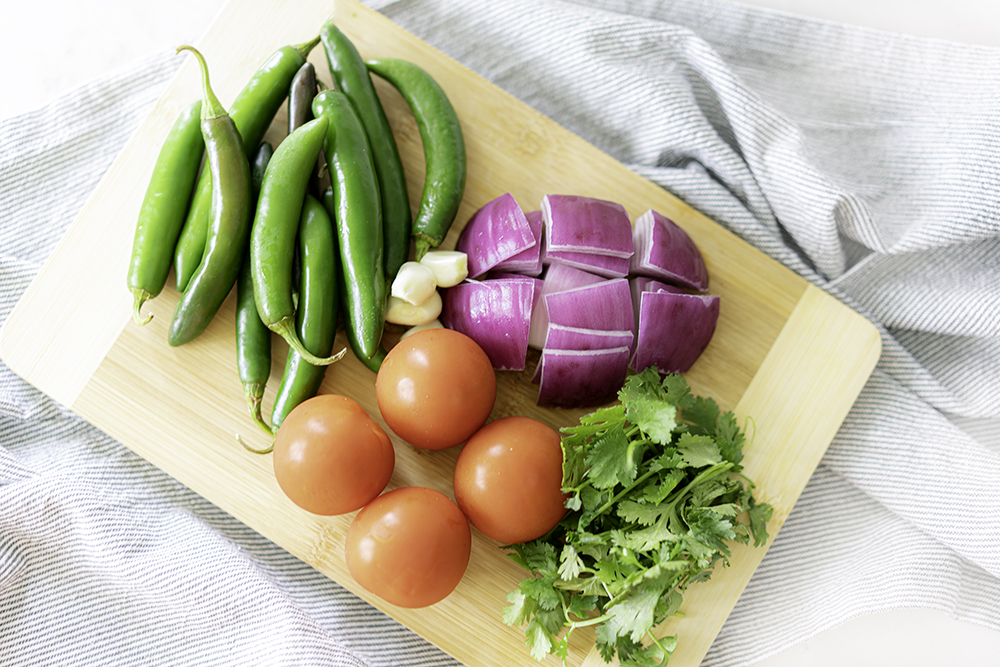
Organic is more expensive, but why?
There are a few key reasons why. These include the rising demand for these foods driving the pricing up, the certification costs for the farm, the special handling practices requiring more labor to be involved, and the higher cost of the materials necessary to grow organic produce.
Quick Tips to Help Answer, “Should I Be Eating Only Organic?”:
- Eat a variety of foods. If you have variety, you never have too much or too little of one thing.
- Seasonal produce is ALWAYS the best option.
- Be wary of fear tactics in advertising.
- Don’t skip the produce just because it isn’t organic.
- There are no hierarchy of foods. Conventional does not equal bad. Organic does not equal superior.
- Sorry to say, there are still pesticides and chemicals used in organic farming.
- Wash and scrub all produce regardless of how it was grown.
- This is not a black and white issue. There are many gray areas in this very polarized debate.
- You do not have to choose a side, but you do need to stay informed and make your decision based on data, not fear or marketing.
- What you do most matters most. The 80/20 rule applies here too! At least 80% of the time, choose the best food options you can, leaving 20% for fun or less nutritionally dense option.
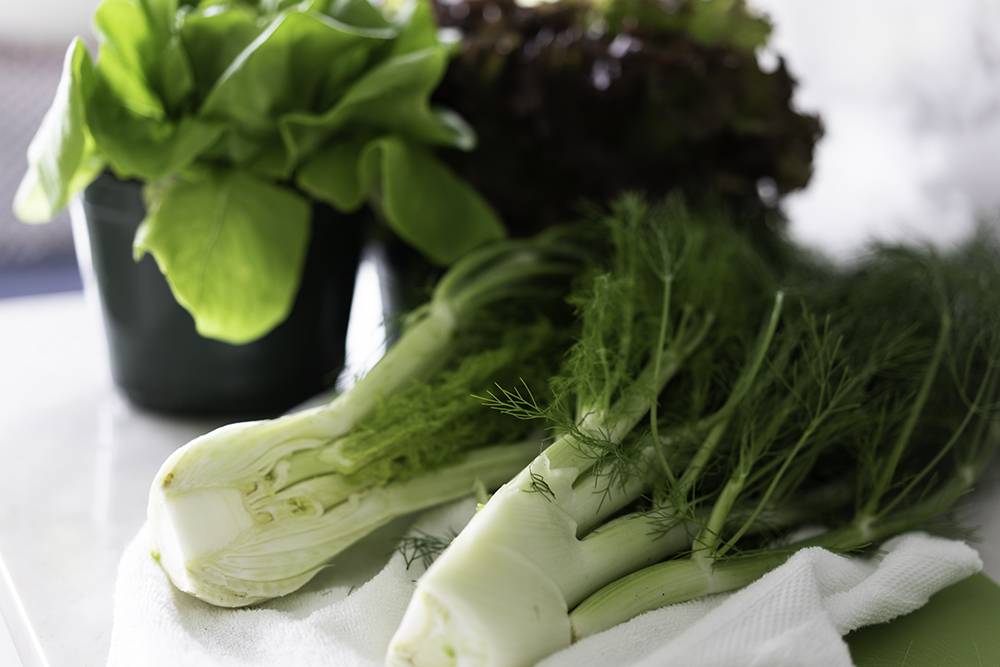
Food For Thought
Yes, I buy organic apples and berries and tofu and oats. However, I will not completely go without these foods that are packed with fiber, nutrients, and vitamins if I can’t find the organic version. If there is a food that I eat only occasionally, I don’t worry if it is organic. What you do most matters most. If you eat an apple every day, maybe consider putting organic apples in your food budget. BUT … don’t skip the apples if you can’t afford the organic ones! If you are peeling a thick skin off something like a banana or a pineapple, maybe you could buy the conventional version. Then, you can shift the money to something that concerns you more.
So, the food for thought this Tuesday is this: if you are asking yourself if you should be eating only organic foods, you must follow it with a few other questions. Can you afford it, do you understand the full scope of organic farming, are these foods always available to you, are there some foods that perhaps don’t need to be exclusively organic? Above all, evaluate what you do most of the time, and be sure you don’t make any decisions based in fear.
All the best,
Tara 🍏
A Few Other Tips You Might Like
Should I Be Eating Only Organic?
When Eating Organic Really Matters
Should I Be Eating Soy as a Vegetarian?
How To Choose A Dairy-Free Milk Alternative
Tips To Make Going Plant-Based Easier
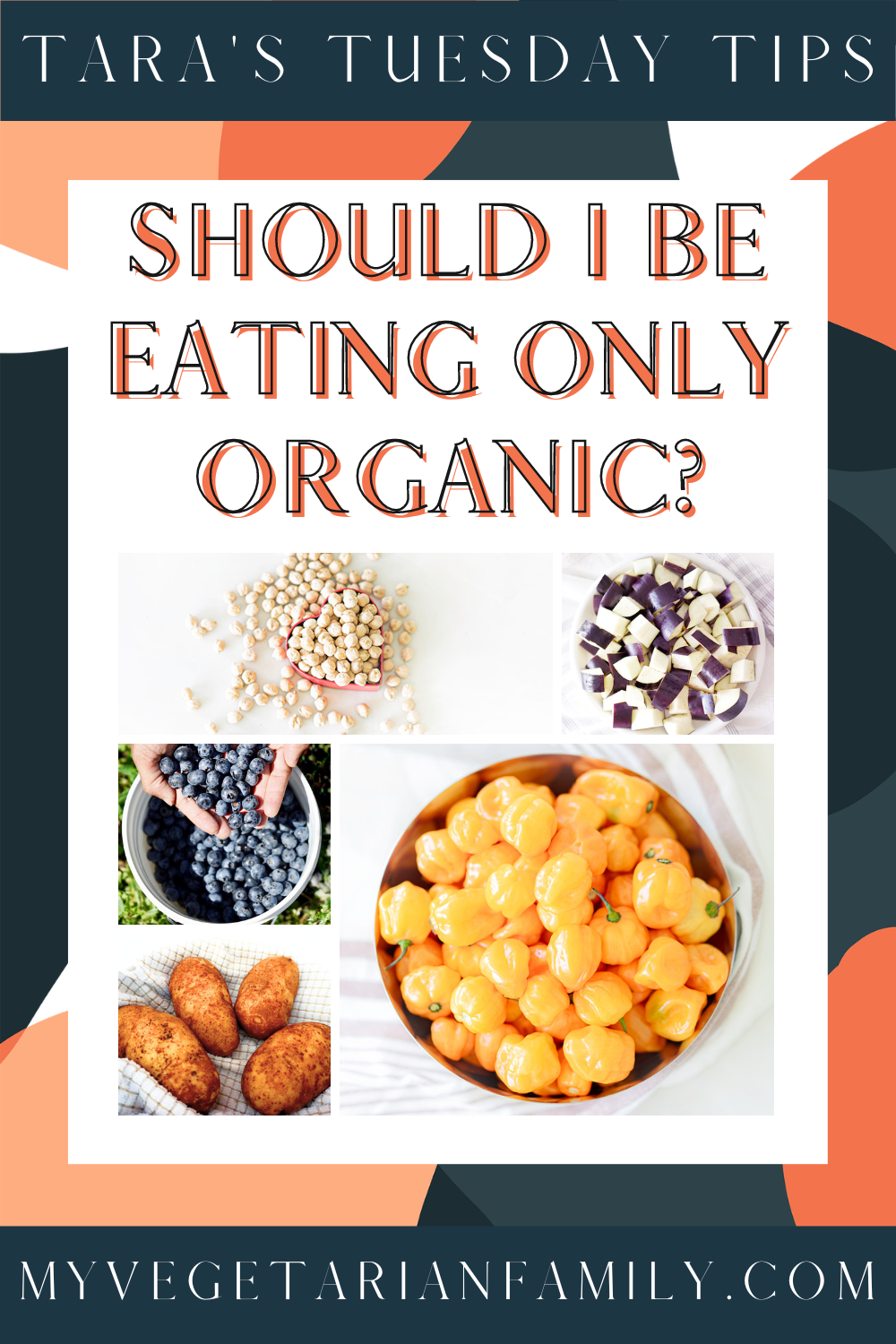
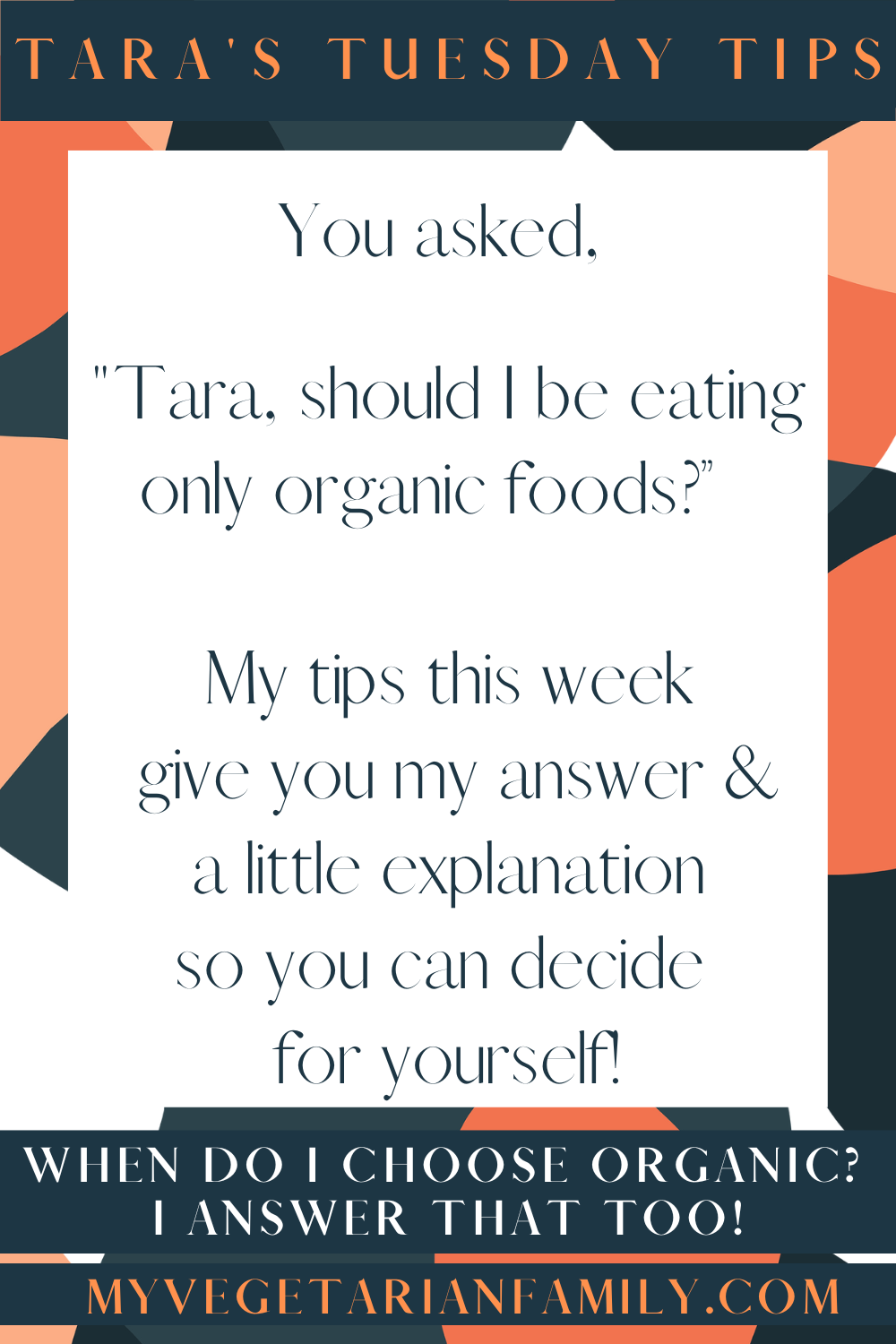
⭐Did you learn if you should be eating only organic? Leave a comment below!
📸I love to see your creations! Follow me on Instagram @myvegetarianfamily and hashtag it #myvegetarianfamily
📩Be sure to subscribe here to my weekly emails for tips + recipes so that you never miss a veggie thing!

